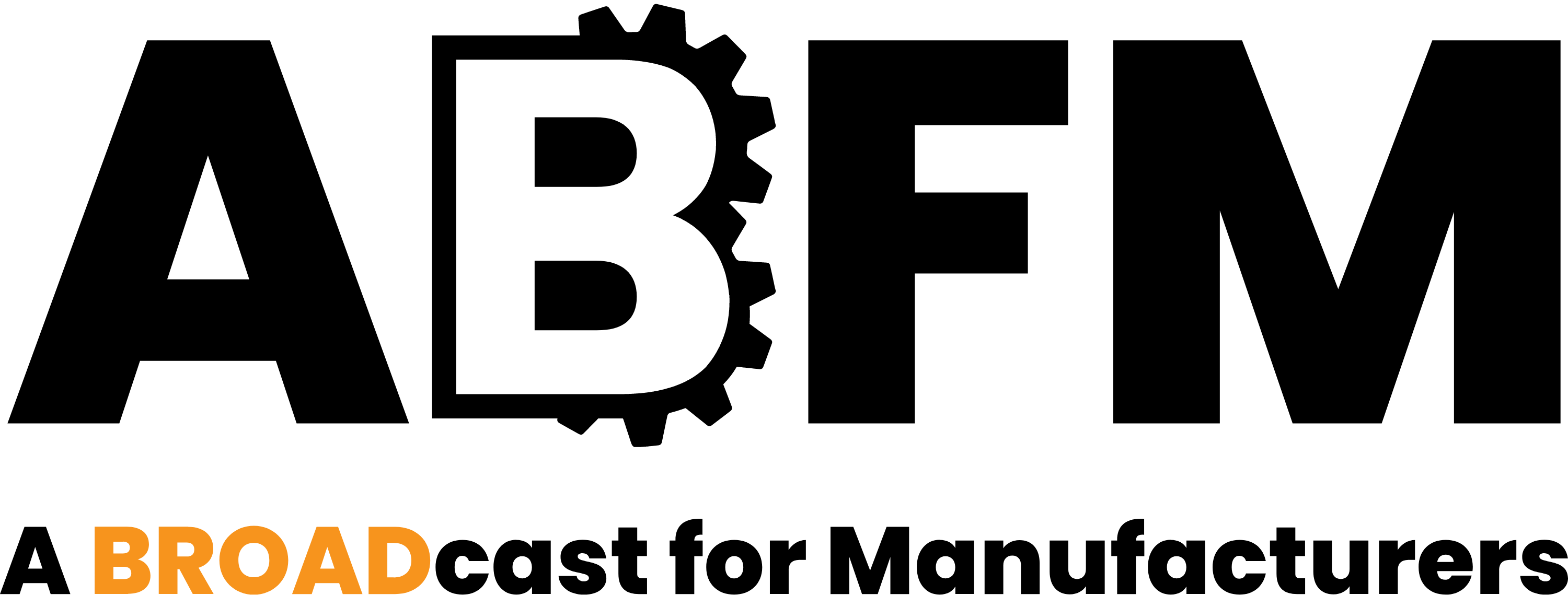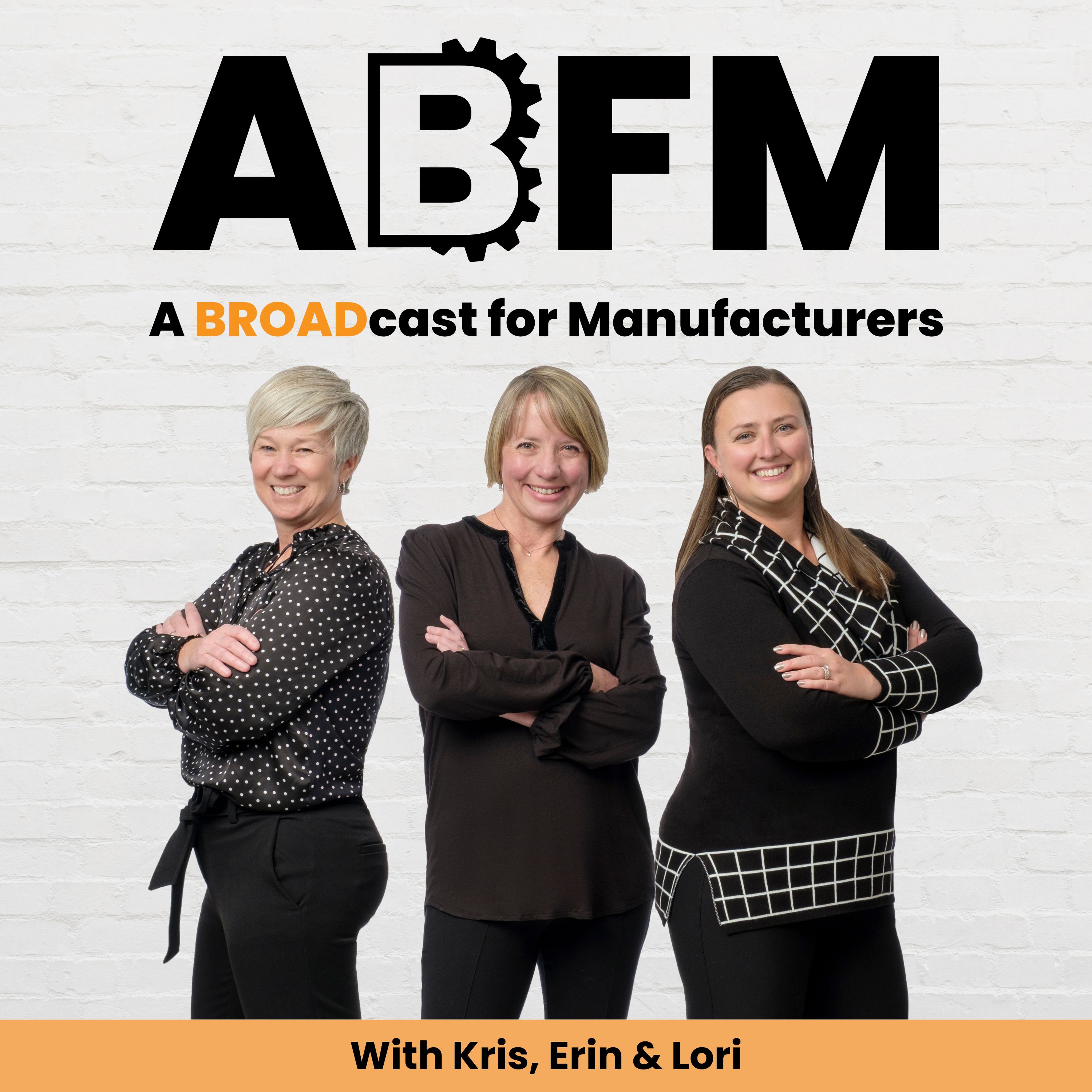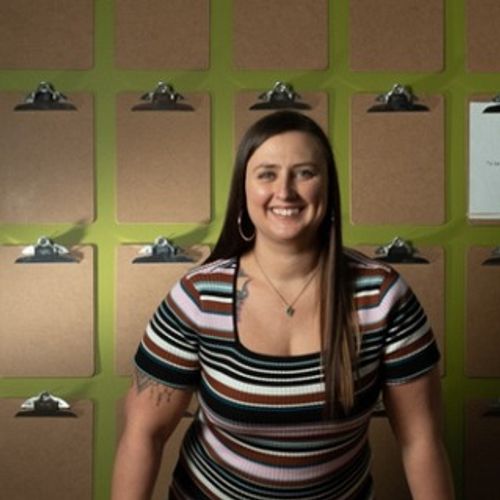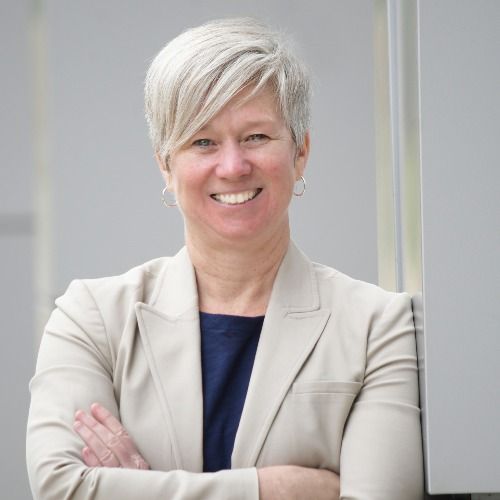Episode 18
18: Why Digital Marketing is Essential for the Manufacturing Industry - with Sue Nordman
Meet Sue:
Sue is the President of Obsidian Manufacturing Industries, Inc., a position she has held since 2018. She previously worked part-time for the family business while raising her three children. She has a long history within the manufacturing industry, with some of her earliest memories being of her father talking about working in manufacturing. She finds the marketing aspects of her job the most enjoyable and is zeroed in on establishing her company as a leader within the industry.
Kris: What's changed on the sales and marketing side over the last five years for your team at Obsidian?
Sue: Well, in general, it applies to our team because we sell machine tools and machinery. So there are lots of different kinds of manufacturing, but the metal, you know, metal forming and working, cutting and all that is a pretty big sector, part of the manufacturing sector. And traditionally, when my dad was in manufacturing, in like the 70s, I mean, he was going way back to the 50s. But I can specifically remember like in the 70s sales, there was the salesman and they traveled all over and it was very intense. And the sale almost began with them. They were out searching for leads, doing cold calls, that type of thing. And now that's kind of on the back burner. I mean, it's more marketing is up there in front, which way back then, it was advertising that really marketing and there's a lot of print ads and things like that. So, you know, I have a husband that's been a machinist since 1984. And then, of course, my dad's no longer with us, but he has been a big influence on my husband and me. So we have that mindset that that's the way sales should be still for our products in our industry. And it's changed a lot. I mean, you can do a lot by just sitting at your computer. Yeah, digital marketing is taken over. And even in the last five years, I can remember talking to my husband and saying, you know, we need to get on social media, we need to have digital marketing, presence, and everything and he's like, Oh, no, you can try that. But we're gonna keep doing what we're, you've always done. Yeah. Now fast forward five years. I think with the pandemic happening, it, you know, surged it forward for a lot of business total, not just manufacturing, but all over. But I think that manufacturing is on the cusp of something new. I think that they're going to start leaning more toward marketing. Not that sales aren't important. It's a team event, in my opinion. So yeah, yeah, I think it's changed a lot
Lori: So how can a circular economy help manufacturing?
Sue: Well, it's all about that sustainability that everybody's trying to achieve. We a lot of have our brands, our oldest brand is over 100 years old. Cool. Our other three are somewhere around 70/75 years old. And so obviously we are, we are still repairing orders that are good, 75 years old, maybe 80 years old, some of them come in here, their parts for that. So, you see old machines like that. And there's a lot of we've had some customers call and say, I don't need my order, but I can't get rid of it. Because I just don't want to scrap it. So do you guys want to buy it, and that type of thing? People just don't want to see that part of manufacturing go away, I think there's some stability still to it,, they're a good standby. Just, for example, our grinders are all cast. So they are just cast iron, they're just, they're not fabricated at all. They're a very heavy duty machine that can take a lot of parts if they're still working after 80 years, they're still grinding, they just need to be, you know, rebuilt a little and have some parts replaced their ways need to be scraped that type of thing. There are still got plenty of decades of grinding left enough. So with a circular economy, you know, you're making taking and, you know, preventing the waste. So it's just, it's a recycling type mindset, as far as, instead of just getting rid of the machine, let's see if we can reuse it breaking down that type of thing. Yeah. And I think it could do wonders for a lot of manufacturers. To have that mindset. And that type of you know, I don't know when, but somewhere our culture moved into where you buy an appliance, and then if it breaks, you throw it away, And I think this circular economy is, you know, the opposite of that, let's fix it, let's get that type of thing. I guess I probably have a little bit too much for my parents and me,
And so much more…
Connect with Jennifer
Connect with the broads!
Connect with Erin on LinkedIn and visit http://www.earthlinginteractive.com for web-based solutions to your complex business problems!
Connect with Lori on LinkedIn and visit www.keystoneclick.com for your strategic digital marketing needs!
Connect with Kris on LinkedIn and visit www.genalpha.com for OEM and aftermarket digital solutions!
Transcript
Lori Highby Chris Harrington and Aaron Courtney, three broads, bringing you stories and strategies exploring manufacturing topics that
Lori Highby:Ladies the other day, I realized what my guilty pleasure was, and I'm kind of curious what yours is. I know
Kris:reveal yours reveal yours first. So
Lori Highby:I've been doing this for a few years now and I it's funny because I feel so sneaky doing it with I don't know why, but when I travel
Lori Highby:pampering done. I love it. Yeah.
Kris:Guilty pleasure. I'm guilty of too because I'm gonna try as well. Man, I
Erin:feel like I just got permission to go do that. You should nice one. Chris. You have one? Well, I
Kris:absolutely do. I think mine would be Sundays. You know binge watching TV. Mrs. B's salty, caramel chocolates next to me. If it's later in the
Kris:thinking about anything.
Erin:Yeah. Nice. I love it. Okay, so mine. And this is a big reveal. For people that know me. I'm a mom of two kids. And part of the whole like, the
Erin:own Bathans I buy those. And that's Is there a particular flavor? You know what, I'll just I'll take anything, but I really enjoy the they have
Kris:My dark side it gives you the next time I see those.
Erin:Yeah, okay, growing. Alright people. I am personally super excited about our guest today because I've had the pleasure of talking with her. We
Erin:Manufacturing Industries, and she's held that position since 2018. Sue previously worked in a part time capacity for the family business while
Erin:Welcome Sue.
Unknown:it's nice to be here. Thank you for having me. I'm excited today.
Erin:Yeah, we're excited to we're gonna dive in you know, we're going to ask you a bunch of personal questions about your guilty pleasures. Haha,
Unknown:Obsidian started out in 2007, as Magna lac, USA Incorporated, which is one of our brands. And that was like our first brand. And my
Unknown:grinding machines. And then we ended up that's when we did some stock transfers, and I ended up taking over the majority of the stock. So we
Unknown:able to go to work and then go home. Yeah. And then in 2019, we acquired grainy business that had went out of business, and we moved into their
Erin:Oh, a lot going on over there. I
Unknown:saw there's a lot going on. Yes, busy story. Perfect.
Kris:Well, you know, just to jump into some questions. I'm curious, for you, Sue, and everything you have over at obsidian right now, what's really
Unknown:Well, I think in general, and it applies to our team, because we sell machine tools and machinery. So there's lots of different kinds of
Unknown:very intense. And the sale almost began with them. They were out searching for leads, doing cold calls, that type of thing. And now that's kind of on
Unknown:have that mindset that that's the way sales should be still for our products in our industry. And it's changed a lot. I mean, you can do a
Unknown:done. Yeah. Now fast forward five years. I think with the pandemic happening, it actually, you know, surged it forward for a lot of business
Lori Highby:it really has it's, well, it's changed because the buyers changed, you know, as you know, your, your father's no longer around that
Lori Highby:into how they function in their careers as well?
Unknown:Exactly. And I think digital marketing helps a lot of companies sell direct, so distributors and that type of thing. They're still around.
Unknown:alese distributors all over the place. And I don't know how you, I don't even can't wrap my brain around how they would be competing with each
Erin:right. Yeah.
Unknown:But I can't imagine doing business without the Internet. Back then when I'm talking about us without the Internet. So I suppose that that is a
Lori Highby:think about like, what did people do before computers? Like, what was their work? Like,
Lori Highby:for the computer? Was it you? Know, it was worth
Kris:entry. A lot of paper a
Erin:lot. Yeah.
Lori Highby:typewriters? Yes. Yeah.
Erin:Yeah. Also, maybe not quite as many expectations for what you can accomplish these days. So yeah,
Kris:I'm really glad you brought up the apprehension for moaboutg on to social and making some of those changes, because I think there are a lot of
Unknown:I was definitely wrong.
Kris:2020 I had to make some changes to exactly, I'm so glad that I did. And it's opened up all this opportunity. But I still think there is a
Unknown:yeah, that's exactly where my husband was at. And, you know, he's on board now. 100%, but he was a little iffy there. And he's like, you can
Unknown:of reservations about a course we have our brands and, you know, there have proprietary protection of you know, everything and he was worried, you
Lori Highby:God, I could talk about this conversation for years saying,
Erin:remember that episode we did on competition, and we kind of like dismantling the old ideas about I mean, that was for b2b, but I think it
Lori Highby:I love it. There's a presentation that I've done a handful of times. It's called the biggest mistakes manufacturers make in marketing and
Unknown:Well, it's all about that sustainability that everybody's trying to achieve. We a lot of have our brands, our oldest brand is over 100 years
Erin:which one is the older one? The Arter auditors the 100 years? That's great. Okay, yeah.
Unknown:And so obviously we are, we are still repairing orders that are good, 75 years old, maybe 80 years old, some of them come in here, their
Unknown:still to it, they, they're a good standby. Just, for example, our grinders are all cast. So they are just cast iron, they're just, they're not
Unknown:you know, you're making taking and, you know, preventing the waste. So it's just, it's a recycling type mindset, as far as, instead of just getting rid
Unknown:think this circular economy is, you know, the, the opposite of that, let's fix it, let's get that type of thing. I guess I probably have a little bit
Erin:our values No,
Unknown:throw that away? Yeah, yeah. If
Erin:you're, if your business can't reflect your values, then you know, it's time to kind of reconsider why you're in what you're in. And so I'm
Erin:pandemic, and you're talking about, you know, a circular economy, which that's a value a lot of young people hold as, you know, being sustainable
Erin:know, it's a bit of a chicken and egg. But what are some,
Unknown:I was just gonna say, I really think that is a chicken and egg. Question. And I, it's funny that you should bring it up, because my son and
Unknown:ideas and everything. And we found out the state of Illinois has passed some legislation that the schools have to be ready by certain dates. And
Unknown:these deadlines set up to bring it back. But, um, my son brought up this the, you know, point of, shouldn't we be getting the kids ready, because
Unknown:But I think if I had a younger kid, I probably would be switching more to, we need to get the kids ready, we need to really be introducing them to
Lori Highby:random though I don't Yeah, I wouldn't say it's one or the other has to come first. I think they have to happen in tandem. Yeah,
Unknown:which I think is what's happening as far as in Illinois right now. But I don't know how the rest of you know, the kind
Erin:Well, you don't want to see happen is all of these resources going towards the equipment and the facilities, but then the interest on the part
Erin:that those changes are being introduced, you know, in terms of providing students with those opportunities, and I agree with you completely on
Unknown:And even even if they're not going to go into it as a career. I think having their hands on it and making something is definitely is
Erin:Yeah. And ask good questions. Like, is this made with this, that or the other because then I am a I'm a more informed consumer. So yeah, I
Unknown:Yeah, yep. Yeah,
Kris:those were some of my favorite classes. I know for sure. And yeah, thanks. Some people never get an experience if they don't have a class. So
Unknown:Exactly. Yeah. There's actually a guy on tic tac that is I can't remember the name of it currently.
Erin:But Sue used to tick tock Yes, sir. Tick talker. Yes, I am. You're like a dude, zero.
Unknown:I gotta keep up. I gotta keep up. I'm sitting as a tic tac. So I have a tic tac to see what, wow, what out there for my company. But, um,
Erin:well, I think I think it's coming back. And I love that you're a part of that and that your family is a part of that. Yeah. So I'm a little
Kris:Well, I just learn that McKinsey did a survey this year that say they did the same survey back in 2016. And the survey was about the labor force
Kris:surprise to all of us coming out of, you know, COVID and remote work and some other things that, you know, has really been adopted by people, but
Kris:to them? Is that like four hour or four day work weeks at 12 hour days? So they have a little bit more time off? You know, is it you know, five days
Kris:years, if it goes back down that percentage, because I just feel like, it's not such a surprise that it's high after COVID. But, and kind of just the
Erin:yeah, you are so on to something. I mean, this could be a completely new episode, but there's like all this, are we hybrid? Are we in the
Lori Highby:So, last podcast, we recorded, you know, I, we kind of talked about how I always find these research articles, which is ironic because
Lori Highby:point hit I think it was like 125 days in a row of working out at least 30 minutes a day. And then I broke it chained. But what I found is that now
Lori Highby:couple years ago wasn't necessarily in that space. It was like, come home, from work, sit on the couch, watch TV. Yeah. And now I'm like, come home.
Erin:That's awesome. That is great. That's awesome. You think
Kris:it's great to you know, though? Yeah, you're
Lori Highby:having hope I don't stop this. The good addiction, I
Erin:guess. Yes. Yeah. Well, there's all the research coming out and writing about habit formation. And I think it's sort of like you've tapped
Kris:I just started a book today called do the work, like literally just started reading it this morning. But it talks about that mind, body soul
Erin:that's, that's awesome. Aaron, what about you? Oh, me. Okay, this is so goofy. This is just a goofy one. But I was listening to a really
Erin:this is kind of a goofy little bit. Apparently David Bowie voice to my kids love SpongeBob you know, so he voiced when the characters in SpongeBob lore
Unknown:Well, we had a discussion the other day in the office, and I don't, it's not really like a factor or anything, but it was it went down a
Unknown:And I just thought that was really interesting. That analogy. Yeah. You know, like, because I was like, That makes a lot of sense to be so I
Erin:We just sucked a bunch of coins out of here. ching ching, ching ching.
Unknown:I just was like a, you know, a light bulb came out of my head and a lot of sense. Yeah.
Kris:Thanks for sharing that.
Erin:Yeah. Thanks. Okay, well, um, we're getting ready to wrap up. So Sue, we want you to tell our audience where they can find you where they can
Unknown:you can visit our website at obsidian mfg.com. And I'm on LinkedIn. I'm open to connect. Twitter. Apparently, tick tock, yeah.
Erin:Awesome. Well, we'll get all those up in the show notes. And it's thank you so much for joining us.
Unknown:Thanks for having me. I enjoyed it. Join the conversation.
Erin:Wonderful. All right.
Lori Highby:Until next time, thank you. So next time everyone.
Unknown:This wraps up today's broadcast. If you're looking to shake up the status quo at your organization, or just want to connect with these broads,




